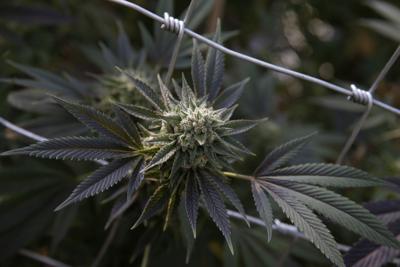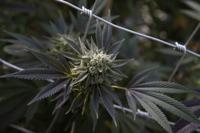DENVER — Some Colorado lawmakers want to use $3.5 million in recreational pot tax revenue to seek a matching Medicaid grant from the federal government, which considers pot illegal. Here are five things to know about the state's marijuana income:
— HOW IT'S GOING: Recreational pot sales began Jan. 1. Legislative economists estimate Colorado will sell nearly 2 million ounces of recreational pot next fiscal year. At an estimated $200 an ounce, Colorado would sell nearly $395 million worth.
— HOW MUCH POT COSTS: Marijuana is like alcohol, the price isn't set by the state and it fluctuates wildly based on potency and quality. Pre-rolled joints at some dispensaries sell for roughly $4. High-quality strains can fetch about $400 an ounce, an ounce being considered the equivalent to a keg of beer.
— POT TAXES: Colorado taxes recreational pot at least 17.9 percent, not counting local taxes. In Denver, it's nearly 29 percent. Since recreational sales began, the state has collected more than $7.6 million, including industry fees and medical marijuana taxes. Gov. John Hickenlooper's office estimates pot taxes and fees could produce $125 million for the fiscal year beginning in July.
— WHERE POT TAXES GO: When Colorado legalized pot in 2012, voters assigned the first $40 million from excise taxes to school construction. Sales taxes are up to state lawmakers to appropriate, and they're just starting to debate how.
— ONE OPTION: Budget writers propose spending $23 million now, including taxes and fees from the pre-existing medical marijuana industry, mostly to support efforts to prevent people under 21 from using pot. Using a $3.5 million program for drug prevention efforts focused on kids eligible for Medicaid, Colorado would then apply for a federal matching grant. The feds would have to agree.




 Your Privacy Choices
Your Privacy Choices